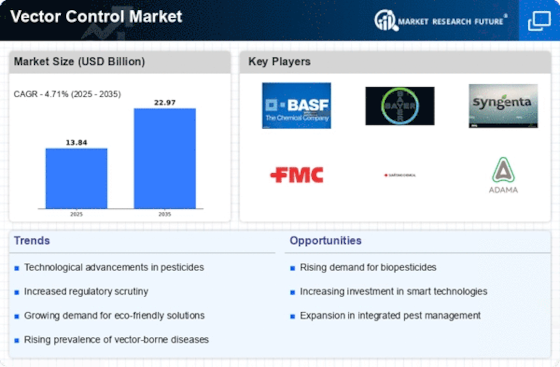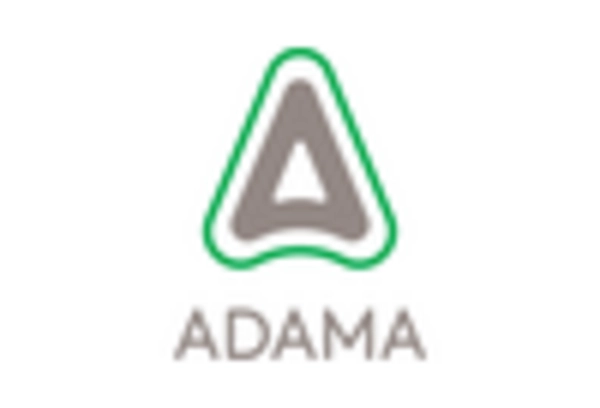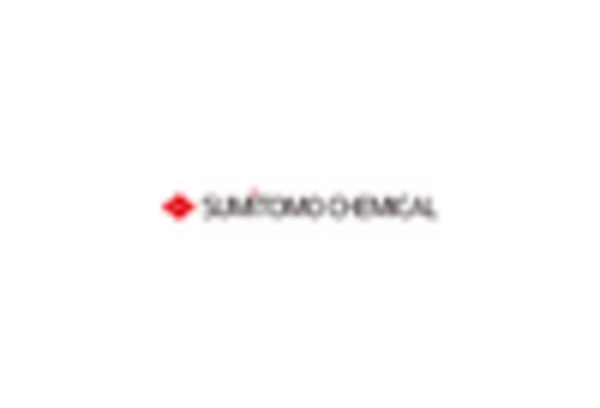Market Share
Vector Control Market Share Analysis
vector control market, dedicated to managing and mitigating the spread of vector-borne diseases like malaria, dengue, and Zika virus, relies on effective market share positioning strategies to address public health challenges. Various approaches are employed by companies and organizations operating in this sector to establish a competitive edge and maximize their impact.
One primary strategy involves product differentiation and innovation. Companies invest in research and development to create novel vector control solutions that offer superior efficacy, safety, and sustainability. This includes developing new formulations of insecticides, deploying advanced technology for surveillance and monitoring, and designing innovative vector control tools such as traps and barriers. By continuously improving their products and introducing new solutions, companies can differentiate themselves in the market and attract customers seeking the most effective means of vector control.
Pricing strategies also play a crucial role in market share positioning within the vector control industry. Some companies choose to compete based on pricing, offering cost-effective solutions that are accessible to a wide range of customers, particularly in resource-constrained settings. This approach aims to address affordability barriers and ensure widespread adoption of vector control measures. Additionally, offering flexible pricing options, such as volume discounts or installment plans, can further enhance a company's competitive position and expand its customer base.
Moreover, companies often focus on niche markets or specific geographic regions to tailor their vector control strategies. Recognizing that vector-borne diseases vary in prevalence and characteristics across different regions, companies may develop localized solutions tailored to the specific needs of target markets. This could involve adapting products to target particular vector species prevalent in certain regions or offering comprehensive vector control programs customized to local epidemiological conditions. By understanding the unique challenges faced by different communities, companies can position themselves as trusted partners in the fight against vector-borne diseases.
Branding and marketing efforts also play a critical role in market share positioning within the vector control sector. Building a strong brand identity helps companies establish credibility and trust among customers, governments, and other stakeholders. Through effective branding, companies can communicate their commitment to public health, highlight their expertise in vector control, and differentiate themselves from competitors. Additionally, targeted marketing campaigns can raise awareness about the importance of vector control measures and educate communities about available solutions, ultimately driving demand for products and services.
Furthermore, strategic partnerships and collaborations are instrumental in enhancing market share positioning in the vector control industry. Working with governments, international organizations, non-governmental organizations (NGOs), and research institutions allows companies to leverage their combined expertise, resources, and networks to implement comprehensive vector control programs. Collaborations may involve joint research projects, public-private partnerships for product development and distribution, or capacity-building initiatives to strengthen vector control infrastructure in endemic regions. By aligning with key stakeholders and pooling resources, companies can amplify their impact and solidify their market position.


















Leave a Comment